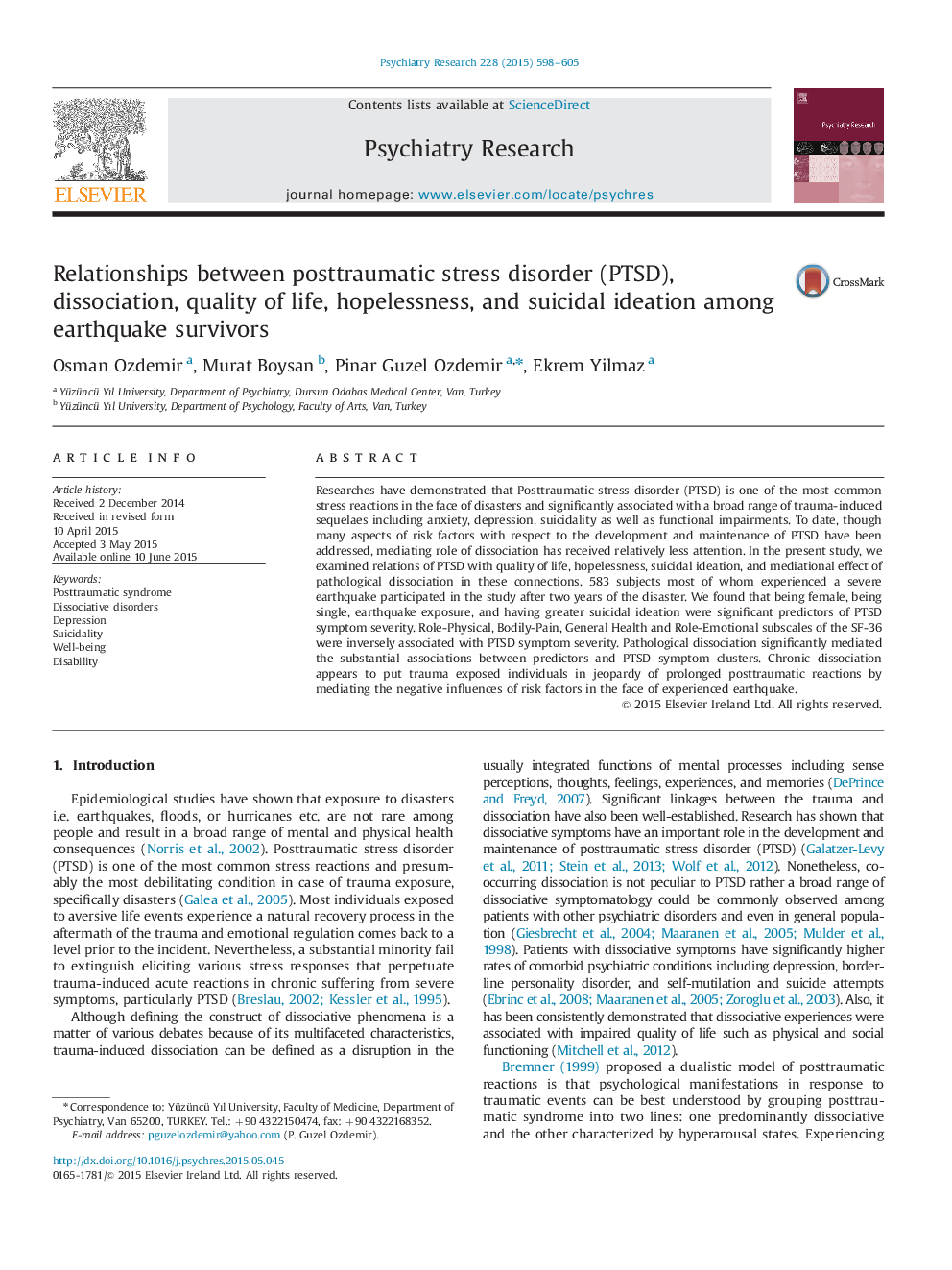ترجمه فارسی عنوان مقاله
روابط بین اختلال استرس پس از سانحه، گسستگی، کیفیت زندگی، ناامیدی و افکار خودکشی در میان بازماندگان زلزله
عنوان انگلیسی
Relationships between posttraumatic stress disorder (PTSD), dissociation, quality of life, hopelessness, and suicidal ideation among earthquake survivors
| کد مقاله | سال انتشار | تعداد صفحات مقاله انگلیسی |
|---|---|---|
| 60044 | 2015 | 8 صفحه PDF |
منبع

Publisher : Elsevier - Science Direct (الزویر - ساینس دایرکت)
Journal : Psychiatry Research, Volume 228, Issue 3, 30 August 2015, Pages 598–605
ترجمه کلمات کلیدی
سندرم پس از تروما - اختلالات تجزیه ای؛ افسردگی؛ خودکشی؛ رفاه؛ ناتوانی
کلمات کلیدی انگلیسی
Posttraumatic syndrome; Dissociative disorders; Depression; Suicidality; Well-being; Disability

